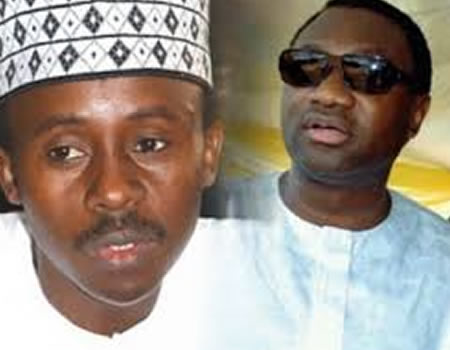THE Supreme Court has scheduled judgment for January 26, 2024, in the appeal by the jailed former member of the House of Representatives, Farouk Lawan.
A five-member panel led by Justice John Okoro chose the date on Thursday after lawyers to parties made their final submissions and adopted their written briefs.
Lawan’s appeal, marked: SC/CR/616/2022 is seeking to set aside the 24 February 2022 judgment of the Court of Appeal in Abuja, which sentenced him to five five-year jail terms and discharged him on two out of the three counts on the corruption charge brought against him by the Federal Government.
Although it was his motion for bail, pending the determination of his appeal, that was listed for hearing, the court elected to take the main appeal rather than dissipating energy on the interlocutory application when the appeal was, on its own, ripe for hearing.
Lawan’s lawyer, Joseph Daudu (SAN) had, while urging the court to first take the bail application, said his client’s health was threatened.
Daudu said: “He (Lawan) has stage three prostate cancer,” noting that if it gets to stage four, there is no assurance that he will remain alive.
But, on realising that the court was unwilling to back on its position, Daudu applied to withdraw the bail application, following which the main appeal was taken.
Daudu urged the court to allow his client’s appeal and set aside the judgment of the Court of Appeal.
Daudu noted that the Court of Appeal discharged on counts one and two, which attracted a maximum of seven years.
He argued that if the Court of Appeal could discharge his client on the two counts, which he claimed, have the same ingredients as the third count, the Supreme Court should equally let him off the hook in relation to the third count.
Lawyer to the Federal government, Bagudu Sanni, urged the court to affirm the judgment of the Court of Appeal and dismiss the appeal.
The Court of Appeal had, in its judgment, reduced Lawan’s initial maximum jail term from seven to five years.
Lawan was convicted by a High Court of the Federal Capital Territory (FCT) on 22 June 2021 on a three-count charge of soliciting a bribe, agreeing to accept a bribe and actually accepting $500,000 bribe from businessman, Femi Otedola.
Justice Angela Otaluka of the FCT High Court in the 22 June 2021 judgment sentenced Lawan to seven years on count one; seven years on count two, and five years on count three.
But, in its unanimous judgment, a three-member panel of the Court of Appeal, led by the court’s President, Justice Monica Dongban-Mensem, quashed Lawan’s conviction on counts one and two.
The court held that the prosecution failed to prove both counts relating to demanding and agreeing to accept $ 300 million bribe from Otedola.
Justice Dongban-Mensem noted in the lead judgment that the investigators did a shoddy job by not analysing call logs from the telecommunication service provider to ascertain whether or not there were phone conversations between Lawan and Otedola as claimed by the complainant.
She further noted that while Lawan was accused of demanding and agreeing to a $300 million bribe from Otedola during phone conversations, it was incumbent on the investigators to obtain the call logs and analyse same.
“There is no convincing evidence to establish counts one and two. There is a big lacuna in the respondent‘s (prosecution’) case against the appellant (Lawan) as it relates to offences charged in counts 1 and 2. The offences were not proved beyond reasonable doubt,” she said.
Justice Dongban-Memsen held that the prosecution (respondent) was only able to prove the third count relating to his accepting a bribe of $500,000.
She noted that even the appellant admitted collecting the $500,000 from Otedola.
The judge therefore acquitted Lawan on counts one and two (on which he was sentenced to seven years per count) but upheld his conviction on count three (on which he was sentenced to five years.
The judgment was on the appeal by Lawan, marked: CA/ABJ/CR/495/2021.
Justices Peter Ige (now retired) and Mohammed Mustapha, who were other members of the panel, agreed with the lead judgment.
Credit: thenationonlineng.net
Eighteen-Eleven Media


